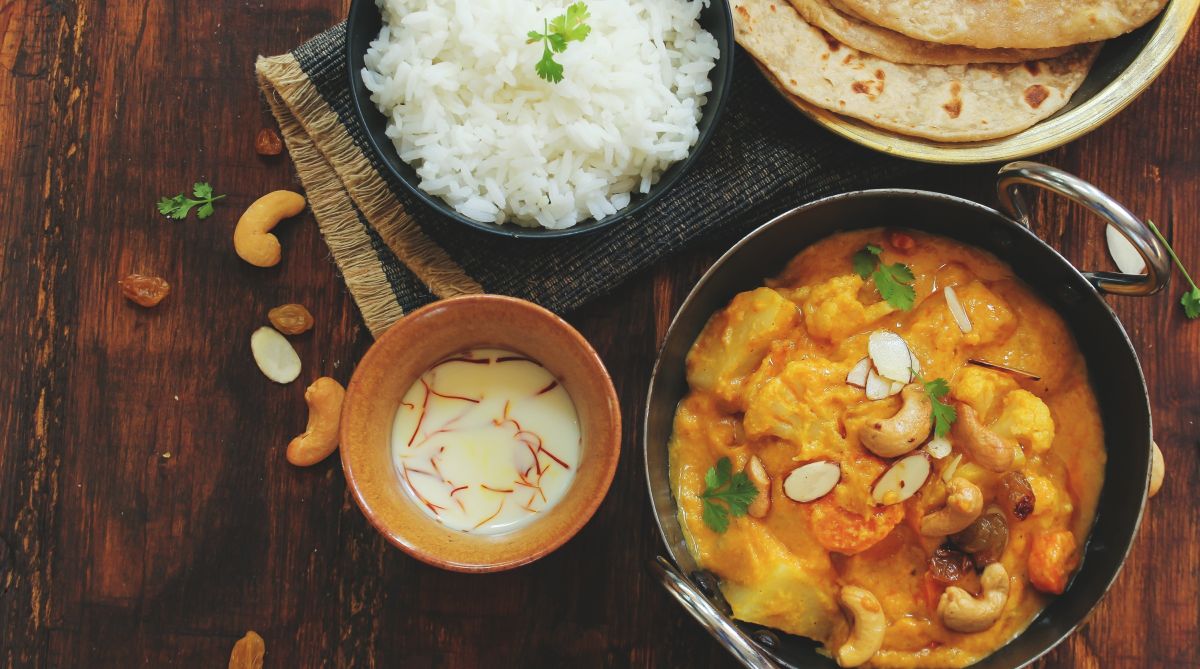Fasting delicacies
Various food restrictions apply during Navratri; some ingredients are permitted while others are not.
Well, here’s some trivia about Navratri fasting and what makes it good for you!

(Photo: Getty Images)
It is that time of the year again, with colourful Garba nights and vibrant Pujo pandals garnering throngs of people from all walks of life to celebrate in togetherness the nine days, or rather nights of Navratri.
Do your Navratri memories feature sneaking Kuttu puris (buckwheat) from the kitchen during Navratri, or gobbling piping hot aloo chaat or simply feeling amused at the sheer amount of ‘Navratri’ food in the markets but never quite registering the brouhaha about it?
Advertisement
Well, here’s some trivia about Navratri fasting and what makes it good for you!
Advertisement
Navratri is the time for relaxation and rejuvenation of the mind and the soul. These nine days of fasting have a deeper physical and psychological impact on our body, and should not be merely reduced to a religious practice.
“If your stomach is full, then you will sleep off” says Gurudev Sri Sri Ravi Shankar, founder of The Art of Living,
“Eating the type of food that will purify the body is fasting. If you are just hungry all the time, then that’s also not fasting.”
A superb opportunity to detox
Fasting is done to detoxify the body. The body and the mind are very intimately connected. So when the body is purified through fasting, the mind also becomes calmer.
So this Navratri, stock up on your favourite fruits and see the flush of vitamins put a glow on your face.
Avoid consuming excess starch, specially fried potatoes which can easily be replaced by baked sweet potato.
Also don’t forget to stay hydrated, keep sipping on jeera water, juices, coconut water or vegetable soup to replenish your body and flush out toxins. You could also make interesting combinations of detox water.
Tuning in the digestive system
According to Ayurveda fasting is an effective way to rekindle the digestive fire or hunger. Usually, most of us don’t wait to feel hungry.
Hunger is the way our body indicates that it is prepared to digest food. Eating even before feeling hungry weakens the digestive system, which in turn leads to stress and a poor immunity level.
Fasting increases our digestive fire and this fire burns the lethargy and dullness in the body that comes through excessive eating.
That is why after fasting you feel so fresh and light because every cell of our body comes alive.
Increasing positivity or Sattva Guna
Ayurveda says fasting enhances the quality of life and brings joy and happiness as it greatly increases the sattva level of the body by detoxifying and cleaning the system, which many a times gets stressed by overindulgence in food.
Combination of Yoga and fasting
Gentle yoga poses, stretches, twists and bends complements the fasting process. It speeds up the detoxification process and you will feel uplifted and energised.
Meditation and chanting will also be highly useful during this period of fasting.
Tips to observe the fast
Begin the first three days by consuming only fruits and if needed, Khichdi, for one meal.
Post this you can consume the traditional Navratri diet of Kuttu (buckwheat), Samak (fasting rice) or Sabutdana (Sago) once a day and enjoy fruits through the remaining meals.
Incorporate vegetables like bottle gourd and pumpkin in your diet along with fruits. You can also consume dairy products like milk, Ghee, buttermilk and yoghurt.
However, avoid any fried or heavy food and switch to healthier cooking methods like steaming, baking or roasting.
Those who cannot fast can abstain from non-vegetarian food, alcohol, onion, garlic and spices, and use rock salt instead of common salt for cooking.
Happy Navratri and Happy Fasting! May the Goddess fulfil all your desires.
(The writer is a senior Ayurveda expert with Sri Sri Tattva)
Advertisement